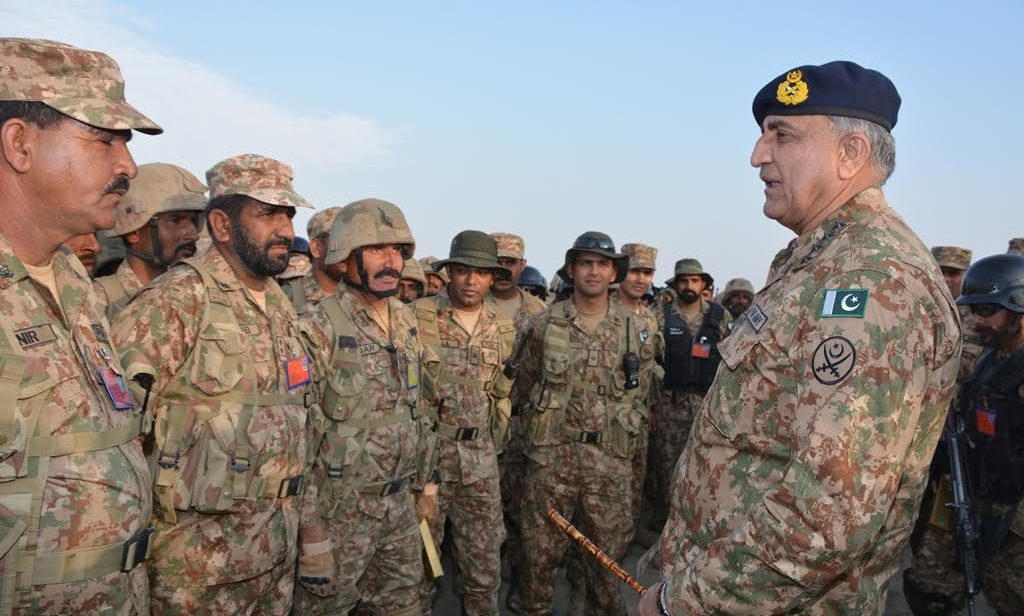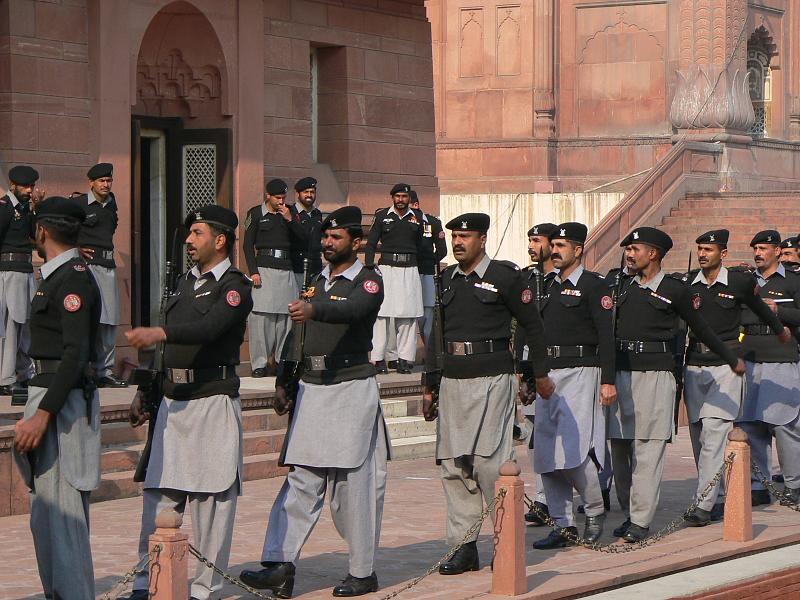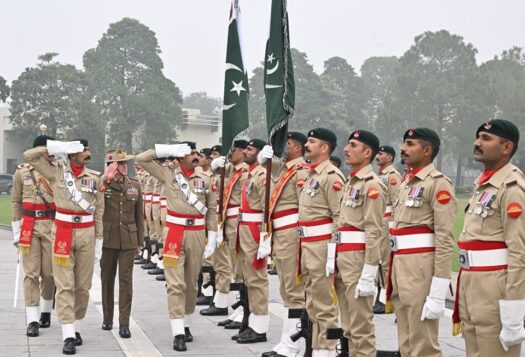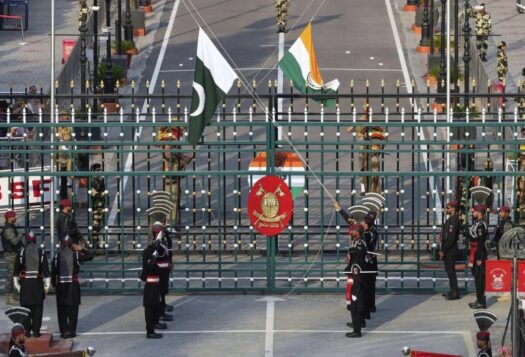
February was a brutal month for Pakistan. Within a span of two weeks, militant groups orchestrated a series of bombings across all four provinces in the country, killing over 120 people. Within days, the military and civilian establishment jolted to demonstrate some sort of retaliatory action and announced the launch of Operation Radd-ul-Fasaad, a new cross-country military operation against terrorism. Since then, numerous security operations have taken place, especially in the province of Punjab, under the army’s new chief, Lt. General Qamar Bajwa. While it remains to be seen which militant groups in the province will be targeted, it is crucial that Pakistan crack down on all groups, including those that target India and Afghanistan, in order to curb terrorism. Additionally, the army’s new operation will require much more than brute military force to solve Pakistan’s problems. In order to properly address Pakistan’s terrorism problem, Prime Minister Nawaz Sharif must accompany military action with strong civilian legislation.
Background
Operation Radd-ul-Fasaad, launched on February 22, aims to eliminate the residual and latent threat of terrorism from the country. The operation, which means “the elimination of discord,” allows the Pakistan Air Force, Pakistan Navy, Civil Armed Forces, and other security law enforcement to actively participate in and intimately support the military’s efforts to eradicate terrorist threats. Days after the series of attacks across the nation, Islamabad approved the deployment of the Pakistani Rangers into Punjab for a period of sixty days, giving them the authority to conduct military and intelligence-based operations. Within a week of the operation, the Rangers claimed to have conducted over 200 search operations and arrested at least 600 suspected militants, exercising all the powers of police officers in the state.
Selective Counterterrorism
Since 2004, the Pakistan military has targeted terrorist groups such as Tehreek-e-Taliban Pakistan (TTP) and al-Qaeda in the northwest tribal areas and Khyber-Pakhtunkhwa (KP). While there is a popular consensus in Pakistan that the operations have been a success and have heightened security in the country, the swiftness with which terrorists struck across the country last month, and even in Parachinar today, has shattered that myth.
While Pakistan may be credited with cracking down on groups such as the TTP that are a threat to the domestic stability of the country, they have consistently turned a blind eye to those that target India and Afghanistan. Punjab is home to a number of these militant groups, including Lashkar-e-Taiba (LeT) (responsible for the 2008 Mumbai attacks), Jaish-e-Muhammad(JeM) (indicted by the Indian government for the December 2001 attack on the Indian parliament), and Lashkar-e-Jhangvi(LeJ), which continue to thrive. However, it has been argued that many members of the TTP were recruited from and trained in Punjabi madrasas by JeM and LeJ and after fighting in the Federally Administered Tribal Areas (FATA) and against U.S. troops in Afghanistan, they have returned home to Punjab.
However, as Cyril Almeida has rightly argued, Pakistan must realize that whatever it does in FATA or KP is immaterial “if Punjab remains untouched.” Militancy is a longstanding and deep-rooted issue in Pakistan, and it needs to be dealt with across the entire country. Islamabad’s propensity to deal with one terror group and give a free ride to another has allowed the country to remain a safe haven for extremist ideology and thinking, despite a crackdown on select militant groups. If Lt. Gen Qamar Bajwa and his men truly intend to rid Pakistan of all troublemakers, then they must stop distinguishing between terrorist groups and begin a concerted effort to destroy all.

The present operation in Punjab is also significant given the possible domestic political repercussions. Prime Minister Nawaz Sharif’s brother Shahbaz Sharif is the chief minister of the province, and the Sharifs have always called Lahore home. The deployment of the Rangers is therefore politically sensitive, because of independent action or the fear of encroachment on authority by paramilitary forces, such as in Karachi. In addition, the PML-N and the Sharifs‘ political links with Islamist parties having extremist views, may explain their reservations over these operations. While it is improbable that the Rangers will do to the PML-N what they did to the Muttahida Qaumi Movement (MQM) and the Pakistan People’s Party (PPP) in Sindh, targeting groups that owe their loyalty to the Sharifs would prove disastrous for the prime minister. General elections in Pakistan are scheduled to be held next year, and given Nawaz Sharif’s tumultuous history with the army, he would hope that the backlash from Raad-ul-Fasaad would not affect the PML-N’s chances in his home state.
Accompanying Military Action with Civilian Legislation
Just as gains from operations in FATA need to be consolidated through operations elsewhere in the country, military security operations must also be accompanied and strengthened by civilian legislation. The Sharif government must begin a full implementation of the National Action Plan (NAP), which is touted as the hallmark of Operation Radd-ul-Fasaad. The plan should make a concerted effort to choke terror financing across the country and crack down on terrorists that use religious organizations as a front to fund their activities. By developing appropriate investigation units at the federal and provincial levels to counter militant propaganda, especially on the internet, the government must focus on developing a counter-narrative to militants. While allowing the military to conduct its own operation, Sharif must coordinate the national counterterrorism effort at large, strengthen the criminal justice system, and put in place a realistic roadmap to enhance the capacity of civilian courts.
It is naïve for Pakistan to function any longer under the long-standing assumption that military action against terror groups is a means to an end. If history is any indication, military victory against militants and terrorists is a short-term solution and insufficient to establishing long-term stability and security for the country. Additionally, if Pakistan truly wants Radd-ul-Fasaad to be successful, it must allow the counter-terror offensive to target all militant and extremist groups in Punjab with no exceptions. For it is in Punjab where the real battle against grassroots extremism must be fought and where Sharif will face his toughest test.
***
Image 1: ISPR
Image 2: Flickr, Omer Wazir


